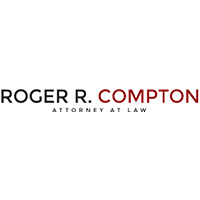 Council Reorganization Lawyers, North Carolina
Council Reorganization Lawyers, North Carolina
Sponsored Law Firm
-
 x
x

Click For More Info:
-
Oliver & Cheek, PLLC
405 Middle Street New Bern, NC 28560» view mapBankruptcy & Debt Law Your Business Partner
Oliver & Cheek, PLLC is a full service business firm providing a wide range of legal services to clients in North Carolina.
252-633-1930
Not enough matches for Council Reorganization lawyer.
Below are all Council Bankruptcy & Debt lawyers.
Sponsored Lawyers
1-10 of 10 matches
Consumer Rights, Bankruptcy & Debt, Personal Injury, Medical Malpractice, Accident & Injury
From a young age, Gary Shipman knew he was destined for the courtroom. After graduating from the University of North Carolina at Wilmington, he earned his law degree from Campbell University School of Law at the age of 24. Two years later, Gary founded his own firm, and he hasn’t looked back since. Gary has spent over forty five years trying cases nationwide, including complex and consequential cases involving personal injury, commercial litigation, professional negligence, and class actions. His courtroom presence and dogged advocacy have earned him a national reputation, and his peers have recognized him as one of the Best Lawyers in America since 2007 and as a Super Lawyer since 2006. At his firm, Gary prioritizes the needs of his clients. When the Great Recession hit, he shifted his practice towards business reorganization and loan workouts. He now represents debtors and creditors in lender liability actions and is a consultant for businesses and investors in various asset transactions. Gary is also passionate about giving back to his community. He has served as the former chairman of the New Hanover County Democratic Party and as a former member of the UNC-Wilmington Board of Trustees. He has also spent twenty years as a youth baseball coach and developed a full-service sports agency, Atlantic Sports Management, in 2013. Gary is certified as a contract advisor and agent by the NFL and NBA, and his clients include coaches and athletes. Gary and his wife, Mary Jo, have three sons. In addition to his legal and community work, Gary is a frequent speaker and lecturer in continuing legal education seminars and at his alma maters, UNC-Wilmington and Campbell University School of Law. Gary’s dedication to his clients, community and passion for sports has made him an exceptional attorney and leader in Wilmington.
(more)Business, Bankruptcy & Debt, Commercial Bankruptcy, Lawsuit & Dispute, Estate
Clayton Cheek received his B. S. degree in English from Wake Forest University, his MBA from Wake Forest University and his J. D. from Wake Forest University. He is a member of the NC Bar Association, the American Bar Association and has been recognized by Super Lawyers. His focus is in Chapter 11, 7 and 13 Bankruptcy, Workouts and Alternatives to Bankruptcy, Business Entities, Contracts and Transactions, Estate and Succession Planning and Estate Administration. Before joining Oliver & Cheek, Clayton was a partner in the law firm of Hornthal, Riley, Ellis & Maland, L.L.P. in Elizabeth City, North Carolina, where he worked from 2003 to 2010. Before attending law school Clayton worked in a fund raising capacity with Ducks Unlimited, Inc., in Memphis, Tennessee.
(more)Bankruptcy & Debt, Family Law, Divorce, Traffic
At the North Carolina law firm of Roger R. Compton, Attorney At Law, our attorneys provide experienced and dedicated representation. From initial consultations to trial, we aggressively support our clients' best interests and constantly strive to be the best advocate for our clients. Whether our clients need assistance with family law matters, filing for bankruptcy, applying for Social Security benefits or fighting a traffic violation, our attorneys are dedicated to serving their needs.
(more)


 George Oliver New Bern, NC
George Oliver New Bern, NC AboutOliver & Cheek, PLLC
AboutOliver & Cheek, PLLC Practice AreasExpertise
Practice AreasExpertise



